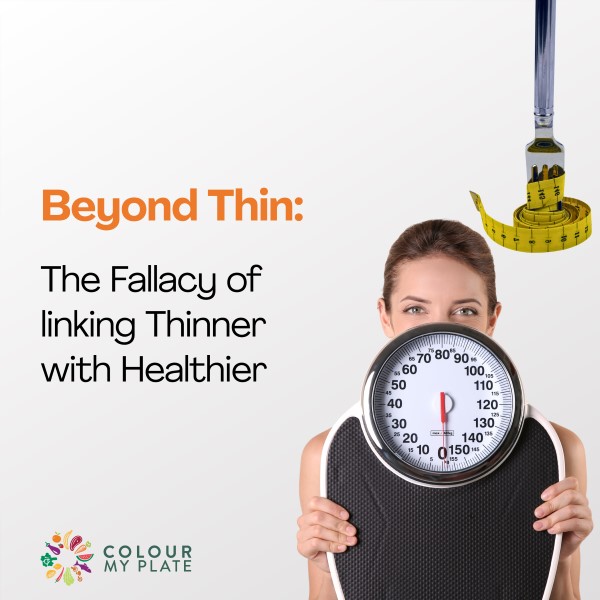
![]() 5 Mar 2024
5 Mar 2024
In a world that often glorifies being thin, it’s essential to challenge the common misconception that being thinner equates to being healthier. The pursuit of a slim physique can sometimes overshadow the importance of overall health and well-being. In this blog post, we’ll explore why thinner doesn’t necessarily mean healthier and dig into the critical components of true health that extend beyond the numbers on a scale.
Health is a complex interplay of various factors, including genetics, lifestyle, and mental well-being. Merely focusing on weight can be misleading, as it doesn’t differentiate between muscle, fat, and other tissues. A person with a higher muscle mass may weigh more but be healthier than someone with less muscle and a lower weight.
The pursuit of a thin body sometimes leads to unhealthy practices, such as extreme dieting, excessive exercise, or even the development of eating disorders. These practices can have detrimental effects on physical and mental health, undermining the very goal of becoming healthier.
Thinness doesn’t guarantee good metabolic health. A person with a slender frame may still have poor metabolic markers, such as high blood sugar, cholesterol, or blood pressure. Focusing on lifestyle factors like balanced nutrition, regular exercise, and stress management is crucial for overall metabolic well-being.
Instead of fixating on weight loss, prioritize nutrient-rich eating. Embrace a balanced diet that includes a variety of fruits, vegetables, lean proteins, whole grains, and healthy fats. Nourishing your body with essential nutrients is a fundamental aspect of promoting health from the inside out.
Shift the focus from thinness to physical fitness. Engaging in regular physical activity contributes to cardiovascular health, strengthens muscles and bones, and enhances overall well-being. Exercise should be viewed as a means of promoting health rather than a tool for weight loss.
Mental health is a critical component of overall well-being. Extreme focus on thinness can lead to body dissatisfaction and contribute to mental health issues. Cultivate a positive body image and prioritize practices that support mental well-being, such as mindfulness, self-compassion, and stress reduction.
Adopt a holistic approach to health that considers various aspects of well-being, including sleep, hydration, and social connections. True health extends beyond physical appearance and encompasses a balance of physical, mental, and emotional elements.
In the pursuit of health, it’s essential to recognize that thinner doesn’t necessarily mean healthier. True well-being is a multifaceted concept that goes beyond the numbers on a scale. By embracing a balanced approach to nutrition, focusing on physical fitness, nurturing mental well-being, and adopting a holistic health mindset, you can redefine your understanding of what it means to be truly healthy. Let’s shift the narrative from thin to well-being and prioritize sustainable, health-promoting practices for a happier, healthier life.

We noticed you haven't completed your delivery details.

Your message is sent